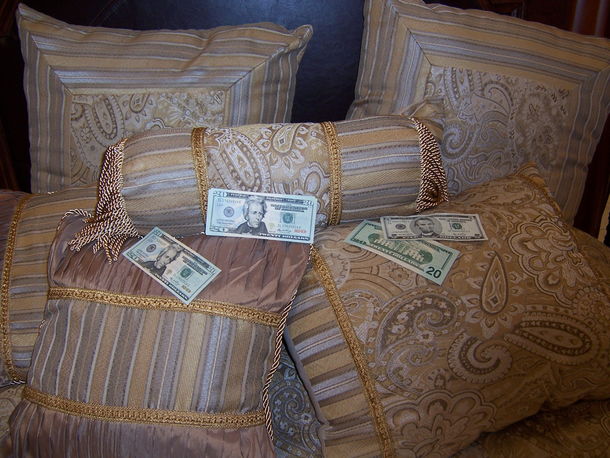Cash and Comfort-Incentive programs that pay for energy-related home improvements

Many of you are aware of efforts to reduce humankind's impact on the environment by lessening our "carbon footprint." Now, after several years of study, the building industry has a "carbon blueprint" for building homes that are energy efficient as well as upgrading the energy efficiency of existing homes.
Controlling air loss is critical to reducing wasted energy. Some of the most common household air leaks are located where there are penetrations in the walls and ceilings. These locations include windows, doors, attic hatches, recessed lighting cans, and pipe, wire, and duct penetrations. When heated or cooled air escapes your living space, your HVAC (heating, ventilating, and air-conditioning) unit must work harder to maintain the desired temperature. This is wasteful and costly.
Improperly sealed air-duct joints are another source of air loss. If you suspect that air is leaking from your duct system, you can have it tested. This test, as well as a general review of your home's energy efficiency, may be arranged by your energy provider.
In Florida, there are a number of companies with programs that help promote energy efficiency; they include Progress Energy, Gulf Power Corporation, and Florida Power and Light. And the best part is, these companies not only provide customized energy-saving tips, they may also help pay for home improvements that increase your home's energy efficiency. For example, Progress Energy pays half the cost of the HVAC duct test: $30 of the $60 cost for the first unit, and $20 of the $40 cost for each additional unit at the same home. Progress Energy also pays up to $150 for duct repair on HVAC units powered by electricity and up to $350 if you upgrade your HVAC unit. There are also incentives when you upgrade your windows, insulation, and other items that affect your home's energy efficiency.
Where to start? First you need to contact your energy provider to see what programs are in place and if they meet your needs. Your utility company will then determine if your home qualifies for the programs and any incentives it offers by analyzing the data you provide through an online questionnaire. A representative can also visit your home and perform an energy inspection in person. If you move forward with the recommended work, you may be required to hire a contractor that meets the utility company's requirements for licensing and insurance.
And there is more icing on this cake. You may also be eligible for additional incentives offered by state and federal government. The "energystar.gov" website has extensive information about energy-efficient products as well as incentives that help cover their cost. From solar heating panels to appliances, there are a number of options for you to consider. And although some of these products have a higher upfront cost than traditional building products, studies show that your reduced energy cost will offset this initial expense. It's a save-save situation because you will save energy and save money in the long run.





